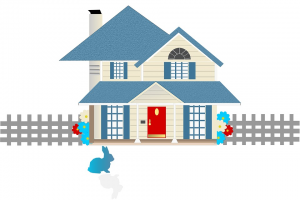What is rental income?
Rental income arises when one rents out a portion of their home or when they entirely rent out their property (residential accommodation) and they receive rental income for this property or portion of it. Rental income can include:
- Holiday homes
- Air BnB
- Bed and breakfast establishments
- Guesthouses
- Renting a section of your home
- Other similar residential dwellings where you receive rent
How is the tax calculated on rental income?
The rental income and any other amounts paid to you for rental or residential accommodation must be added to your other income on your tax return. These amounts will be subject to normal tax at the normal individuals’ tax rates applicable for the applicable tax year. These amounts can include:
- Lease premiums paid to you monthly
- Lease premium lump sum paid at the beginning of the lease and covering the applicable tax year/period. This must not be confused with a rental deposit.
The receipt of a rental deposit does not need to be included in a taxpayer’s gross income at the stage the initial deposit is paid. This is so specifically if there is an expectation for the lessor to pay the deposit back at some stage. The deposit will only become part of the gross income (taxable income) if the landlord applies the deposit. For example, the tenant moves out having damaged the property and the landlord applies the deposit to pay for the repairs.
Can the rental income be reduced?
Yes, the rental income can be reduced by allowable deductions (expenses) for the period that the property was let. Which expenses can you apply to reduce the rental income? Permissible expenses incurred in the production of that rental income can be claimed against that rental income. No private expenses can be claimed against the rental income. The following expenses can be applied against the rental income:
- rates and taxes
- bond interest
- advertisements
- agency fees of estate agents
- insurance (only homeowner’s insurance and not insurance for household contents)
- garden services
- repairs in respect of the area let and
- security and property levies
What if I am not renting out 100% of the property?
You will need to apportion the costs of running your property concerning the space applied for the rental income. You may need to measure the space rented out versus space not rented out. For example, if your entire house is 500 square metres but you only rent out 300 square metres, then the apportionment ratio will be 60% applied to the property running expenses. This means you can only claim 60% of the expenses.
Which expenses cannot be claimed?
Any expenses of a capital nature cannot be claimed against the rental income. This calls for a distinction between repairs and improvements. Repairs are such expenses that restore something to its original condition whereas an improvement usually results in the creation of a better asset. While improvements cannot be claimed against rental income, they form part of the base cost of the property, which effectively reduces the capital gain on the property when the property is sold.

